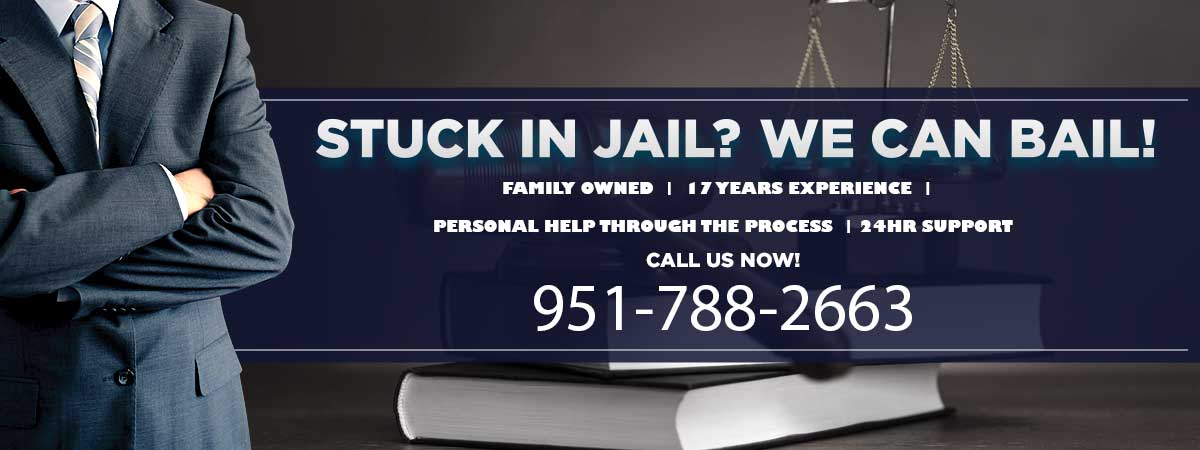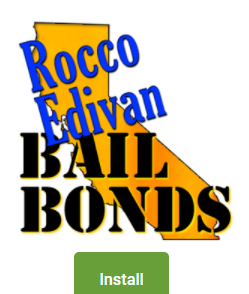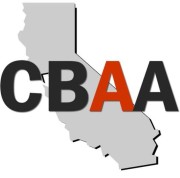The bail system in California helps arrestees stay out of custody as they await trial court proceedings. For this reason, arrestees facing charges have a right to secure release on bail. Even better, bail bond companies have made posting bail straightforward and cost-effective. You can contact a reliable Banning bail bondsman to post bail if you or your loved one faces an arrest. You will then walk out of custody within a short time. At Riverside Bail Bonds, we provide easy and convenient payment plans and options to make the bail process as stress-free as possible. Our services are also confidential and professional.
The Arrest
The police will take you to a local jail or detention facility for booking after an arrest, and the booking process will commence. The booking process involves:
- Recording your name
- Contact information
- Address
- Checking for outstanding warrants
- Fingerprinting
- Background check, and
- Entering your details into the computer system
The booking process could last one hour or less in a less busy jail. Otherwise, it could last several hours. The judge will likely set bail on the same day of your arrest. Bail is the property or money you post with the court before being released from custody or a detention facility.
The judge sets the bail at a value that warrants that you will appear for court hearings after your release. Posting bail is the same as depositing a security. If you post a cash bail, you will receive your money back if you attend court when required. The court will keep the money if you fail to attend court hearings.
It is at the discretion of the judge to release you on bail. The judge will have several options, including:
- Setting bail for you
- Refusing to grant you bail, or
- Release you on your own recognizance, also known as OR release
Being released on your own recognizance means you do not have to pay bail. Instead, you will sign a written citation committing yourself to attend court when required. You will remain in jail until the court resolves your case if the judge refuses to set a bail amount. Capital murder is one of the criminal offenses that could make the judge deny you bail. The judge could also deny you bail if your offense has a death penalty.
The judge could also deny you bail if you commit a felony offense and the facts are clear. You could also remain in custody if you threatened someone with a significant bodily injury. The judge will deny you bail if there is a high chance that you will fulfill your threat if you are released. The following crimes could also trigger a bail denial:
- Felony sexual assault with convincing evidence suggesting that your release would lead to significant bodily injury to other people
- Felony cases that involve violent acts against someone
However, it is unlawful for the judge to deny you bail because you cannot afford it. The prosecutor must prove that bail denial is necessary for public safety. Therefore, the judge must consider your ability to pay before setting bail. You must be accessible even if you cannot afford bail unless it is declared a safety risk.
The judge will consider the following factors when denying, setting, or reducing a bail amount:
- If you have any prior failure to appear in court
- The danger you pose to the community
- The severity of the crime you committed
- Your criminal record
- Whether you are a flight risk
How Banning Bail Bonds Work
You can contact a Banning bail bondsman to help secure your release from jail if the bail amount is so high that you or your family or friends cannot afford to post it in cash. The company will require you or your co-signer to pay a premium as compensation for posting bail for you. The premium is usually ten percent of the entire bail amount. The bail bond agency will pay the full bail amount if you skip court hearings. The ten percent premium is usually non-refundable even if you honor all your court appearances or your case is dismissed. Some bail bond companies could ask you to give them collateral.
The bail bondsman posts the bail amount if you jump into court proceedings. The bail bondsman will lose to the court the money posted for you as bail if you fail to show up for court proceedings as required. If this happens, the bail bond company will pursue you or your co-signer to recover the money. The bail bondsman can sell the collateral you provided to recover its money. Collateral can be any valuable property, including business, jewelry, a house, or a car.
The Process Of Acquiring A Bail Bond In Banning
You or your co-signer can contact a Banning bail bondsman for help once the judge sets bail. You will give the bail bondsman the basic information regarding your situation. The information could include:
- The charges you face
- The detention facility
- The period for which you have been in detention
- Whether you are employed
You could also answer other standard questions. You can provide this information over the phone or in person. After receiving the above information, the bail bondsman will evaluate the risk of posting a bond on your behalf.
The bail bondsman will agree with you or your co-signer after assessing the risk and proceeding to have you sign the contract and pay the premium. The bail bondsman will meet you at the detention facility to post the bail once the bail paperwork is complete.
You will be released from jail once you post bail with the jail facility where you are. The bail money will go back to whoever posted the bail if you honor all the court meetings as scheduled until your case resolution. However, the court will keep the bail money and issue a bench warrant for your arrest if you do not appear or flee the jurisdiction.
How The Judge Determines Bail
Every California county has a bail schedule the court can use to determine the bail amount. The judge can order you to pay the same amount indicated on the bail schedule or set the bail to a higher or lower level. This decision will depend on factors like whether you are a flight risk and the severity of the offense, among others. Recommendations by the police or counsel could trigger a bail hearing. Your attorney could negotiate with the court to reduce the bail amount or offer their own recognizance release.
The Common Ways Of Posting Bail
The following are the standard ways of securing release from custody following an arrest.
Recognizance Release
Recognizance releases are the most popular and desirable type of bail. Release on your recognizance implies that the court releases you based on trust. You commit in writing to appear in court whenever needed. You can wait for court hearings from home without posting any bail.
Citation Release
Citation release bail depends on the discretion of the citing officer. Citation release bails are for written legal citations. For this type of bail, you must pay the entire citation. You will be free to go once you have paid. Citation release is the most accessible bail. However, only the arresting officer can issue this type of bail.
Property Bail Bonds
The court can evaluate the property to ascertain its value, ensuring it covers the whole bail amount plus any additional costs or fees. You must provide documentation proving equity and ownership and a commitment that the property will remain available as collateral during the trial. The court can only accept property as bail if its equity is at least 1.5 times the bail amount. The properties commonly used for property bail include vacation homes, commercial buildings, and personal homes.
Surety Bonds
In a surety bond, your Banning bail bondsman posts bail on your behalf. The bail bondsman will be liable to the court if you do not attend the court hearings as required. A surety bond will cost you ten percent of your bail up-front for incentive purposes. It guarantees that the bail bondsman will receive at least part of their investment.
The following is the process for surety bail:
- The police arrest you
- The judge determines the bail
- You contact a bail bondsman
- The bail bondsman posts bail after you pay the required fees
- You are then released under the assumption that you will attend court proceedings
- The bondsman informs you of your obligations
Cash Bail Bonds
A cash bail is when you use cash to pay the whole amount. Cash bail is usually paid in full and can only be refunded if you honor the court hearings. Generally, paying cash bail is always regarded as a sign of good faith. However, most people do not have sufficient income to post a cash bail.
The Common Conditions Of Release On Bail
Anyone released pretrial on bail or their own recognizance pledges to show up for all the hearings set by the court. If you skip the court hearings, the judge could revoke your release and forfeit the bail. Revoking the bail means you will remain in custody while waiting for the trial. The judge could also make failure to attend court proceedings a separate offense. Some of the conditions of release on bail include:
- Pretrial supervision and regular check-ins
- Electronic monitoring
- Treatment, counseling, or monitoring of substance use or behavioral health issues
- No weapons or surrendering weapons to officials temporarily
- No contact with the alleged victim
- No out-of-country or out-of-state travel
The judge could revoke your bail if you violate the above conditions, amend the bail order, and impose stricter conditions if you commit minor violations.
Bounty Hunters
Also known as bail enforcement agents or fugitive recovery officers, bounty hunters are professionals hired to locate and apprehend fugitives who have jumped bail. Their primary duty is to ensure that people released on bail attend court proceedings. The bail bond becomes forfeited if the arrestee fails to appear in court. A Banning bail bondsman can hire a bounty hunter to track you down and present you to court.
A bounty hunter can legally enter an arrestee's private property without a warrant. Bounty hunters could also use reasonable force to arrest a fugitive. Generally, a bounty hunter receives payment of a percentage of the bail amount, up to ten percent.
Differences Between a bail bondsman and a Bounty Hunter
The differences between a bail bondsman and a bounty hunter are as follows:
License and Insurance Requirements
Bail bondsmen and bounty hunters are subject to various requirements and regulations. Regarding licensing, bail bondsmen are governed by federal rules and regulations. On the other hand, state laws concerning defendants' criminal and civil recovery govern bounty hunters.
The California Department of Insurance is responsible for issuing licenses to eligible bail bondsmen. Applicants must meet educational requirements to secure the license. After the license is issued, the insurance company could certify the bail bondsman to write bail bonds.
Insurance requirements for bondsmen and bounty hunters also differ. For example, bail bondsmen and bounty hunters could require liability insurance. Bounty hunters must maintain a minimum $1 million liability insurance policy.
Roles Within The Criminal Justice System
The primary difference between bail bondsmen and bounty hunters lies in their obligations within the criminal justice system. A Banning bail bondsman provides bail money to arrestees in exchange for a fee, while a bounty hunter tracks down and arrests fugitives who have jumped bail.
A bail bondsman is not allowed to use force or carry a weapon, while a bounty hunter is permitted to use force and carry a gun. However, the use of force by bounty hunters is highly regulated and can have severe repercussions if used illegally. A bounty hunter must comply with specific guidelines when arresting a defendant. If a bounty hunter is pursuing a fugitive, the bounty hunter must produce adequate documentation from the bond dealer to prove their right to do so.
A bounty hunter must inform local law enforcement and secure a warrant or court order within six hours of warning them of the upcoming arrest.
While pursuing a fugitive, a bounty hunter should always carry their license. However, it is illegal for bounty hunters to pose as officers or even wear a badge that could make them look like law enforcement officers.
A bounty hunter from another state could also follow you to California. However, the bounty hunter can only pursue you if he or she comes from a state that requires bounty hunters to undergo training and licensing and meet strict regulations.
Qualities of a Good Banning Bail Bondsman
The following are some of the qualities of a good Banning bail bondsman that you must look for before choosing the bail bondsman to work with:
The Level of Flexibility
Criminal cases vary, and a professional bondsman should be willing to adapt to your specific circumstances. A bail bondsman should provide fair services regardless of your credit rating or financial situation. When evaluating your bail bondsman, examine your willingness to help you or your loved one. You could be able to assess their reliability based on the following areas:
- Requesting collateral for bail bonds
- Providing a variety of payment options
- Providing flexible payment plans
A good bondsman should also be flexible about the meeting time and place. Avoid A bail bondsman who refuses to meet you outside their office or requires you to interact only during regular working hours.
Your Banning Bail Bondsman Should Be Reliable
In the bail bond business, reliability is paramount. You should avoid a bail bond agent who seems impatient, untrustworthy, and distracted. When it comes to money, a reasonable bond dealer should show reliability and be prompt and responsive. An unreliable bail bondsman could promise to release you in a few hours but fail to deliver. Evaluate the bail bondsman's customer service standards and availability to determine if he/she is reliable. You should also assess their willingness to go beyond following through on commitments.
Go for a Knowledgeable Bail Bondsman
Knowledge is power when it comes to navigating the intricacies of the legal system. A bail bondsman with experience can advise you on how to go about a particular case. Your bail bondsman should also give you options for paying the bail bond premiums.
Choose An Affordable Banning Bail Bondsman
When you hire a bail bondsman to represent you, you have to pay a premium as compensation to the bail bondsman for the services offered. The law limits the maximum amount a bail bondsman can charge. The cap is 10% of the total bail amount. Different bail bondsmen can charge different prices depending on their pricing policy. When choosing a Banning bail bondsman, ensure you can afford their services.
However, pricing should not be the sole factor when choosing bail bondsmen. You must also consider other crucial factors, like licensing and professionalism. Do not just choose a bail bondsman because of affordability. If bail bond services are too cheap, it is best to determine if they are reliable.
Jail Information
Smith Correctional Facility
1627 Hargrave St, Banning,
CA 92220, United States
Court Information
Find a Reputable Banning Bail Bondsman Near Me
You will likely feel confused and disoriented when the police arrest you, especially if it is your first time facing an arrest. Following an arrest, your first step should be to contact a reliable bail bondsman to help you secure your release from custody. If you need a Banning bail bondsman that you can rely on, contact Riverside Bail Bonds. We have provided reliable bail bond services for people for decades. When you contact us, we will respond because we understand how inconvenient it is to remain in custody. Contact us at 951-788-2663 to speak to one of our bail bondsmen.





